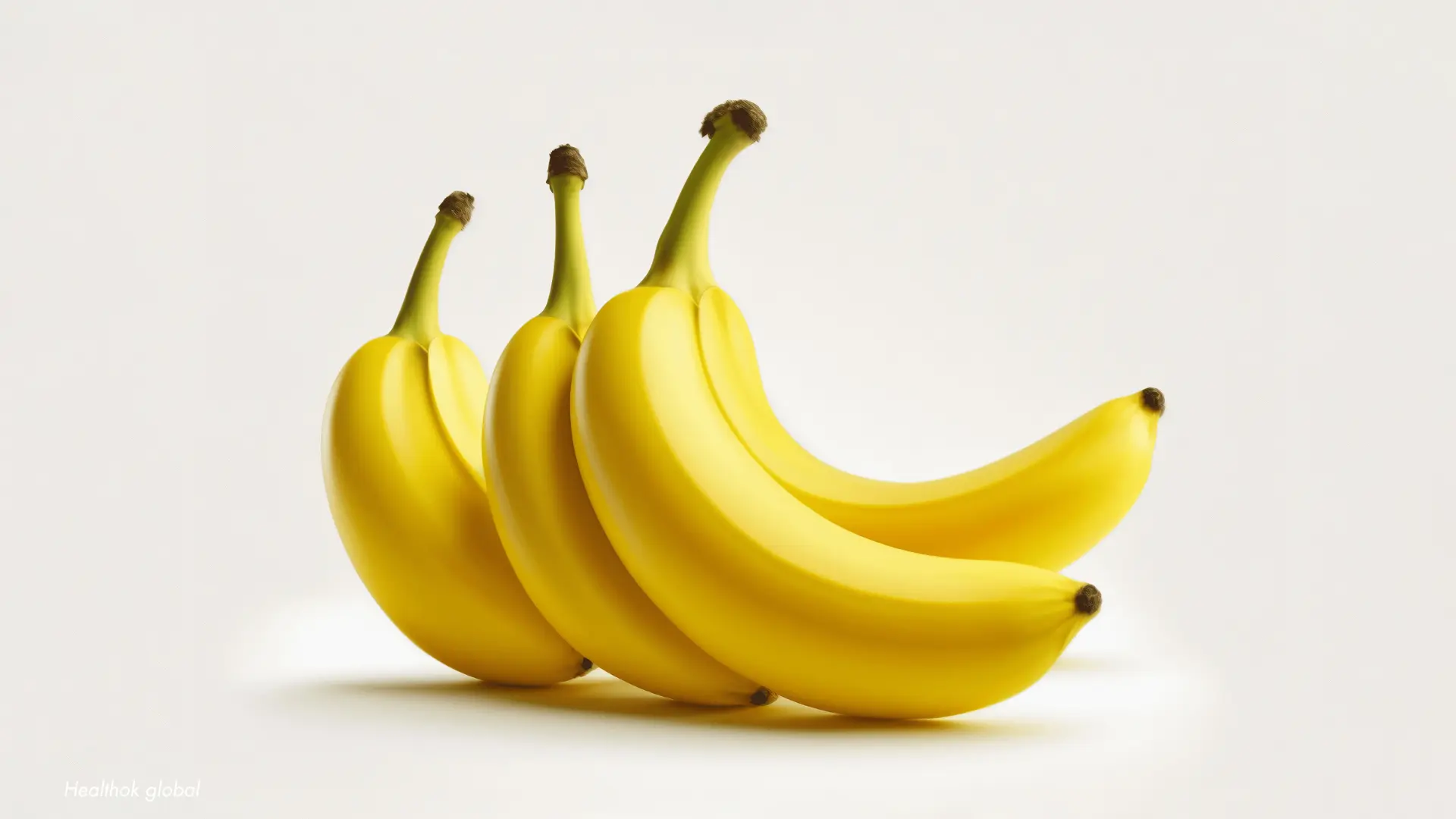Explore the myriad health benefits of bananas in this comprehensive guide. Learn about their nutritional profile, various types, and how incorporating bananas into your diet can enhance overall well-being.

Blog
Banana Health Benefits & Nutrition Guide
Bananas are one of the most widely consumed fruits globally, praised for their taste, convenience, and nutritional richness. This blog uncovers the health benefits of bananas, from digestive wellness to energy boosts, while highlighting how they fit into a balanced diet.
Bananas are naturally fat-free and cholesterol-free, making them ideal for health-conscious individuals. A medium banana offers:
Roughly 105 calories, 27g carbs, 3g fiber, 1.3g protein, and minimal fat.
Bananas contain potassium (12% DV), vitamin C, B6, and magnesium. These support blood pressure regulation, immunity, and muscle function.
Bananas offer several scientifically supported health perks:
Rich in fiber and prebiotics, bananas promote gut health and relieve constipation.
The combination of natural sugars and fiber provides quick yet sustained energy.
High potassium and low sodium levels help maintain blood pressure and cardiovascular function.
Low in calories and high in satiety-inducing fiber, bananas can help curb hunger.
Bananas have dopamine and catechins that help combat oxidative stress and inflammation.
There are over 1,000 banana varieties globally. The most common include:
The standard yellow banana found in most markets.
Starchier and typically cooked, ideal for savory dishes.
Sweeter with a reddish-purple peel, rich in vitamin C and beta carotene.
Miniature bananas known for their super-sweet flavor.
Whether raw or in recipes, bananas are highly versatile:
Add banana, milk, and nuts to make a high-protein banana shake with benefits for post-workout recovery.
A fiber-rich, naturally sweetened alternative to desserts.
Mix mashed banana with oats or egg for gluten-free, wholesome pancakes.
The quick energy release from banana sugar makes it a perfect exercise snack.
Eating a banana on an empty stomach is common, but combining it with a source of protein or fat (like peanut butter) helps slow sugar absorption.
Priya, a 29-year-old professional, suffered from frequent bloating. After switching her sugary morning cereal with banana oats and incorporating fiber-rich fruit like bananas and papaya seeds, she reported improved digestion and fewer energy crashes.
For hydration and immunity, consider combining banana shakes with sweet lime juice. The citrus adds vitamin C, aiding nutrient absorption from bananas.
Yes, it’s low in calories and high in fiber, helping you feel full.
Yes, a medium banana has about 1.3 grams of protein. Combine with nuts for a balanced snack.
In wild bananas, yes. But commercial bananas have tiny, non-functional seeds.
Absolutely, unless you have a condition like chronic kidney disease.
Bananas are nature’s energy bar—nutrient-rich, portable, and delicious. Whether it’s for digestive health, heart wellness, or workout fuel, bananas deliver benefits across all age groups. Add them to your meals creatively and enjoy the natural goodness every day.
HealthOK Global simplifies healthcare with expert guidance, access to affordable medicines, and personalized health plans. Chat with our FREE 24 x 7 Helpline at +91-8047190955 for support anytime.
Yes, it’s low in calories and high in fiber, helping you feel full.
Yes, a medium banana has about 1.3 grams of protein. Combine with nuts for a balanced snack.
In wild bananas, yes. But commercial bananas have tiny, non-functional seeds.
Absolutely, unless you have a condition like chronic kidney disease.
Need Personalized Health Guidance?
Get expert advice tailored to your specific health needs from our qualified healthcare professionals.





